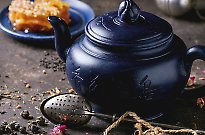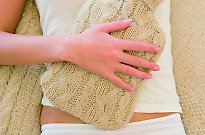
3 herbs to consider for wellbeing

Dr Nat Kringoudis shares her insight into chinese medicine.
Herbs are nature’s great helpers and can be used to remedy any number of conditions, including infertility. But it’s important to remember that what works for one person may not work for another. Nat Kringoudis explains why.
For thousands of years, herbal medicines have been called upon for their amazing ability to support, influence and nourish the body. As a herbalist, I experience first-hand the great benefits of including them in our day-to-day regimes. But what can be confusing is working out which herbal ingredients work and why.
Chinese medicine is very specific when it comes to diagnosing conditions, classed by signs and symptoms and not necessarily the label a condition may have been given. More than likely, no two conditions are necessarily treated in the same manner, but rather based on the signs that show up for each individual person. This means, say, two patients may be experiencing infertility but the treatment approach is wide and varied based on the presentation of the patient.
The same goes for all conditions, be it endometriosis, headaches or bowel issues – the treatment focus stays aligned to meet the patients’ needs and to treat the root cause rather than the symptoms. What this means, however, is that often self-diagnosis and prescription can leave us disheartened – we hear of a friend who’s taken a specific ingredient and it’s changed their lives and naturally we want in. We take the very same ingredient and nothing magical happens. You might now begin to understand that your signs and symptoms are important in telling you how to address your ailments. But if we can group together some common symptoms, we can carefully choose what is right for our own body’s needs. Let’s look at three amazing herbal ingredients specifically for fertility and how we can use them in the right circumstances.
Vitex, or chaste tree, extract
Why it works: This wonderful herb is called upon for supporting a healthy reproductive cycle as it stimulates the pituitary and regulates the production of luteinising hormone. In simple terms, it helps support the production of progesterone, which may assist in regulating a woman’s menstrual cycle and supporting fertility. For this reason it also helps to treat the associated symptoms of premenstrual tension associated with low progesterone, including breast tenderness, headaches and pain. So in cases of low hormones, Vitex can be extremely useful.
Why it won’t work: If low progesterone is a result of excess oestrogen (oestrogen excess will typically force progesterone to be low), then Vitex alone may not work. It’s useful to look at ways to lower oestrogen to allow progesterone to naturally increase.
Green tea
Why it works: The humble cup of green tea will indeed benefit most people due to its high antioxidant element, which helps to clean up oxidative damage that naturally occurs due to environmental toxins and ageing. There are a lot of studies that show green tea’s positive correlation with fertility. Pollution and toxins can lead to excess oestrogen (chemicals can have an affect that mimic oestrogen, meaning your own body’s oestrogen levels climb). This is when green tea is particularly useful; i.e. if there are long menstrual cycles due to high levels of oestrogen and inadequate progesterone.
Why it won’t work: To a degree, green tea will generally have a positive impact on the body; however, depending on how sensitive your liver is to caffeine, it can leave some people with headaches or feeling a little jittery. If fertility is a result of low hormones in general, green tea doesn’t necessarily address this aspect.
Chinese motherwort
Why it works: Chinese motherwort is used in cases of what we refer to in TCM as ‘stagnation’, where there might be obstructions like we see with endometriosis or masses like fibroids. It helps to regulate the flow of menstruation and may treat infertility to help improve the environment of the uterus and is considered a uterine tonic. Chinese motherwort is also believed to help support healthy thyroid function, which can also impact fertility.
Why it won’t work: If there is no reason to believe that the uterus is obstructed or no history of period pain, Chinese motherwort may not improve fertility as it isn’t appropriate to use. It is indicated for use with hyperthyroid – so using it in cases where the thyroid function is low would also be counterproductive.
Herbal medicine is a very intricate craft and requires the skill of the practitioner to diagnose and prescribe according to leading signs and symptoms. Its effectiveness lies in the ability to be able to utilise the right ingredients dependent on the individual’s needs. When unsure, it’s important to enlist the services of a qualified practitioner to help establish what can be appropriately and, most importantly, safely used.


